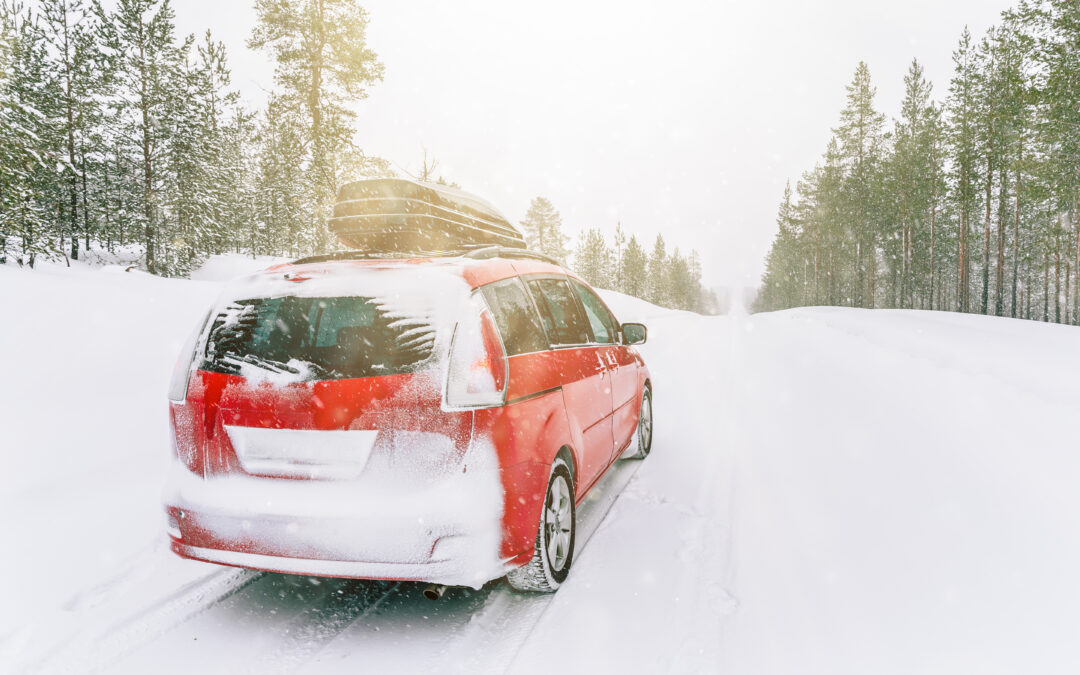Winter weather can pose significant challenges to your vehicle’s performance. Understanding the main culprits of winter weather, how they can damage your vehicle, and proactive measures to prevent this damage can help you keep your vehicle in top shape. In this month’s blog post, we review the culprits of winter, how they can affect your vehicle, and ways to address any possible damages.
Main Culprits of Winter Weather
- Cold Temperatures: Cold weather can affect your vehicle’s battery, tire pressure, and fluid levels. It can also make your vehicle’s components more brittle, increasing the risk of damage through cracking or breaking.
- Ice and Snow: Ice and snow can lead to rust and corrosion, especially on the undercarriage of your vehicle. They can also affect visibility and traction, impacting safety.
- Road Salt: While road salt is necessary for melting ice on roads, it can cause rust and corrosion on your vehicle.
How Winter Weather Damages Your Vehicle
- Battery Performance
- How does winter weather affect battery performance? Cold temperatures can reduce your battery’s capacity, making it harder for your vehicle to start.
- What can you do to proactively address battery damage? Regularly check your battery’s charge and replace it if necessary. Consider using a battery warmer in particularly cold climates.
- Tire Pressure
- How does winter weather affect tire pressure? Cold air can decrease tire pressure, affecting traction, handling, and fuel efficiency.
- What can you do to proactively address tire pressure? Regularly check your tire pressure and consider using winter tires for better traction.
- Fluids
- How does winter weather affect your vehicle fluids? Vehicle fluids, like oil and transmission fluid, can thicken in cold weather, reducing their effectiveness. If coolant is not kept at the proper levels, your engine can overheat or coolant without enough antifreeze can freeze or crack vital engine components.
- What can you do to proactively address fluids? Regularly check and replace your vehicle’s fluids. Consider using winter-grade oil and wiper fluid. Make sure that you have enough antifreeze in your coolant to prevent it from freezing.
- Rust and Corrosion
- How does winter weather affect the risk of rust and corrosion? Ice, snow, and road salt can lead to rust and corrosion, particularly on the undercarriage of your vehicle. This can lead to costly repairs down the line.
- What can you do to proactively address rust and corrosion? Regularly wash your vehicle, including the undercarriage, to remove road salt and prevent rust and corrosion.
Ideally, garage storage is the best way to keep your vehicle protected from some of the winter’s harsher elements. But if you are unable to keep your vehicle indoors, then make sure to follow our advice on ways to proactively address the impacts of winter weather.
While winter weather can be tough on your vehicle, understanding the risks and taking proactive measures can help maintain your vehicle’s performance and value. Remember, a well-maintained vehicle is safer, more enjoyable to drive, and retains its value better in the long run. If you would like to have your vehicle inspected for any winter damage, wear, or tear, contact the service professionals at Campus Repair to schedule an appointment.

